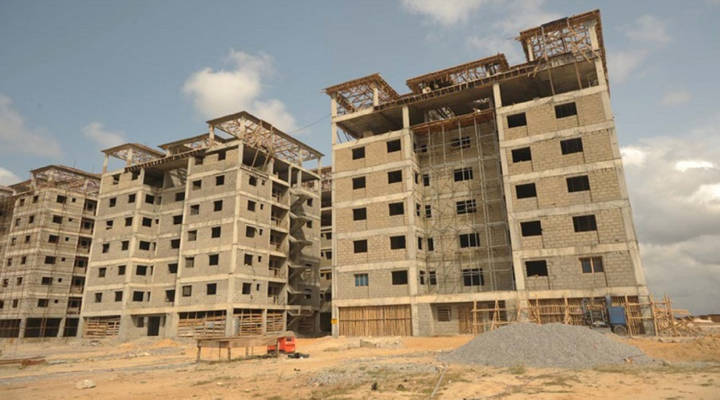New policies in Nigeria, Kenya, and Egypt are having a substantial impact on businesses across these countries, with changes including the removal of fuel subsidies and tax increases. Elevated benchmark interest rates in Kenya, Nigeria, Ghana, and Egypt are increasing the cost of capital, which is affecting the real estate markets.
The removal of fuel subsidies in Nigeria, the introduction of Kenya’s finance tax, and Egypt’s new tax initiatives have disrupted the status quo in business operations.
Moreover, benchmark interest rates in these countries are notably high, further increasing capital costs. In Kenya, the benchmark interest rate is at 10.5%, while in Nigeria, it stands at 18.5%. Ghana has a rate of 29.5%, and Egypt’s benchmark interest rate is 18.75%. These elevated rates are directly impacting the cost of capital.

Consequently, the real estate sector is experiencing mixed performance, with changes in the macroeconomic environment affecting development pipelines, market uptake, and real estate prices. As a result, the second half of the year is expected to witness limited transaction activity, driven by investor caution.
Office sector performance varies across different cities. In Lagos, Nairobi, and Accra, the office development pipeline has declined by 34%, 53%, and 52%, respectively, in 2023 compared to the previous year. This can be attributed to a subdued macroeconomic environment that has affected financing and construction costs.
With the exception of Accra, both Lagos and Nairobi remain tenant markets due to an oversupply that predates the pandemic, with occupancy levels averaging around 75% for Grade A offices and 80% for Grade B offices. Consequently, average office rents have remained stable over the past five years. However, some neighborhoods, like Tema in Accra, have experienced a five-year average growth rate above 5%.
Looking ahead, due to heightened inflation and rising construction costs, new project announcements across these markets are expected to be limited in the near term, maintaining a balance between demand and supply.
The residential markets in these countries are facing deficits at the extreme ends of the market, including the ultra-luxury and affordable segments. For example, the ultra-luxury segment represents only 2% of the market in Lagos and Accra, and approximately 0.5% in Nairobi. Conversely, the luxury and deluxe segments are oversupplied, accounting for 22% and 41% of the total stock on average across the three markets.
Rents have remained relatively stable in dollar terms over the past five years in most neighborhoods. Notably, renewed government initiatives on affordable housing, especially in Nairobi, Lagos, and Accra, are expected to increase institutional participation in this asset class.
The hospitality sector is experiencing a strong rebound, with high development pipeline numbers and increased occupancy rates. This rebound is driven by international and domestic tourism. Domestic tourism, in particular, is on the rise, leading to an increase in short-term rental homes across major cities.
The outlook for the hospitality sector in key cities is positive, despite speculations of potential oversupply due to a vibrant development pipeline.
The retail sector remains relatively subdued, with a limited supply of less than 50,000 square meters accounting for 2%, 13%, and 24% of total stock across Nairobi, Lagos, and Accra, respectively. Existing shopping centers delivered within the last decade have underperformed, leading to a decrease in new supply. Demand for prime retail space is expected to remain subdued due to rising inflation and currency depreciation, impacting consumer purchasing power.
Major retailers are consolidating their efforts or exiting the markets, such as Builders in Kenya, as consumer purchasing power is affected by declining disposable income. The outlook for the sector remains neutral, with weak market fundamentals impeding the possibility of an active development pipeline.
In conclusion, the real estate markets in Nigeria, Kenya, and Egypt are influenced by various factors, including policy changes, elevated interest rates, and supply-demand dynamics. Businesses operating in these countries need to adapt to the changing environment and navigate challenges to remain competitive and thrive.
Support InfoStride News' Credible Journalism: Only credible journalism can guarantee a fair, accountable and transparent society, including democracy and government. It involves a lot of efforts and money. We need your support. Click here to Donate
